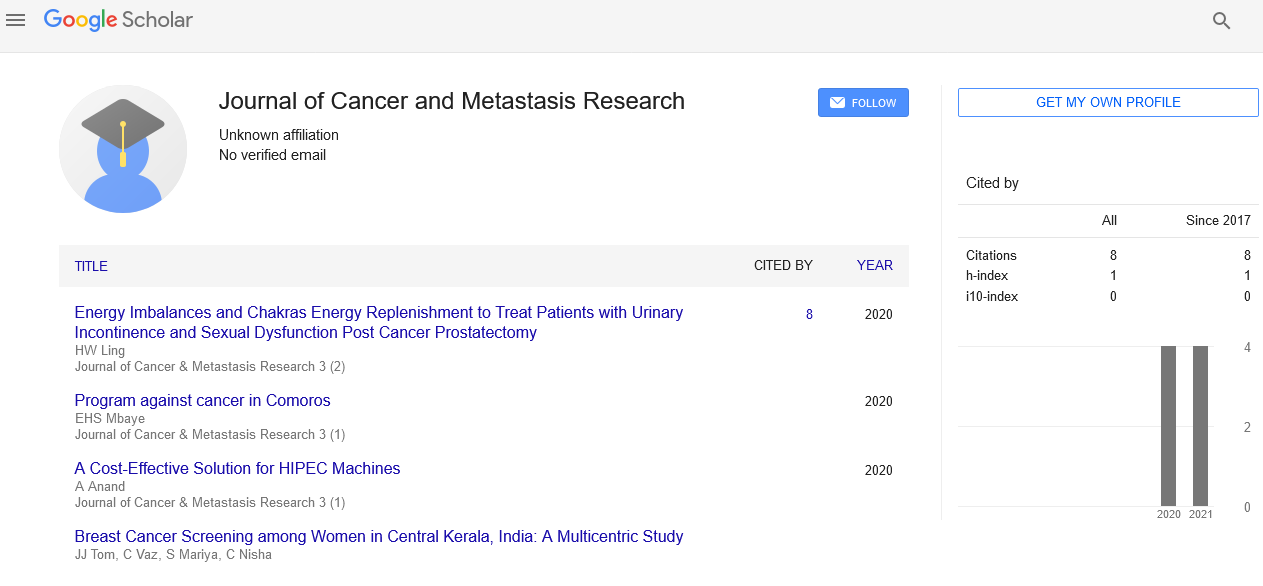
Sign up for email alert when new content gets added: Sign up
Tamoxifen citrate loaded polymeric nanoparticles for enhanced breast cancer therapy
Joint Event on 24th International Conference on CANCER RESEARCH AND PHARMACOLOGY & International Congress on STRUCTURAL BIOCHEMISTRY, STEM CELLS AND MOLECULAR BIOLOGY
August 5-6, 2019 | Singapore
Angana Mondal
Jadavpur University, India
Posters & Accepted Abstracts: J Can Res Metastasis
Abstract :
Various chemotherapeutic agents are used to treat the breast cancer. The existing anticancer agents do not greatly differentiate between the cancerous and normal cells, leading to systemic toxicity and adverse effects. Drug permeation into the cancer cells from the conventional formulation is very poor due to less distribution and quick elimination. The extensive distribution and rapid elimination from targeted organs result in a greater require¬ment of the drug by the tissue, which causes undesirable toxicity. Polymeric nanoparticles play an important role in delivering such kinds of chemotherapeutic agents in a controlled manner. Nanoparticles make it possible to deliver the desired concentration of drug in the specific site, thus minimizing the side effects and reducing the toxicity. A number of novel formulations with Tamoxifen citrate loaded polylactide-co-glycolide (PLGA) based nanoparticles (TNPs) were developed and characterized. Their uptakes in Michigan Cancer Foundation-7 (MCF-7) breast cancer cells were also investigated. Nanoparticles were prepared by a multiple emulsion solvent evaporation method. Drug-excipients interaction, surface morphology, zeta potential and size distribution, cellular uptake were carried out . No chemical interaction was observed between the drug and the selected excipients. TNPs had a smooth surface, and a nanosize range (250–380 nm) with a negative surface charge. Sustained drug release pattern of the nanoparticles were internalized well in the cytoplasm by the MCF-7 breast cancer cells on a concentration dependent manner. Drug loaded nanoparticles were found to be more cytotoxic than the free drug. TNPs (NP-4) showed the highest drug loading and were taken up well by the MCF-7 breast cancer cell line in vitro. Thus the formulation may be suitable for breast cancer treatment.
Biography :
Angana Mondal has completed her masters in “Clinical Pharmacy & Pharmacy Practice” from Jadavpur University. Her thesis topic entitled “A Prospective Observational Study To Compare The Effects Of Ropivacaine With Bupivacaine in Brachial Plexus Block”. She has completed her thesis in collaboration with AMRI Hospitals, Kolkata, India.
E-mail: anganamndl1994@gmail.com




